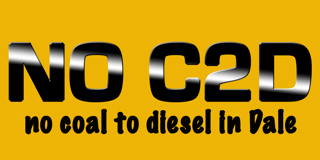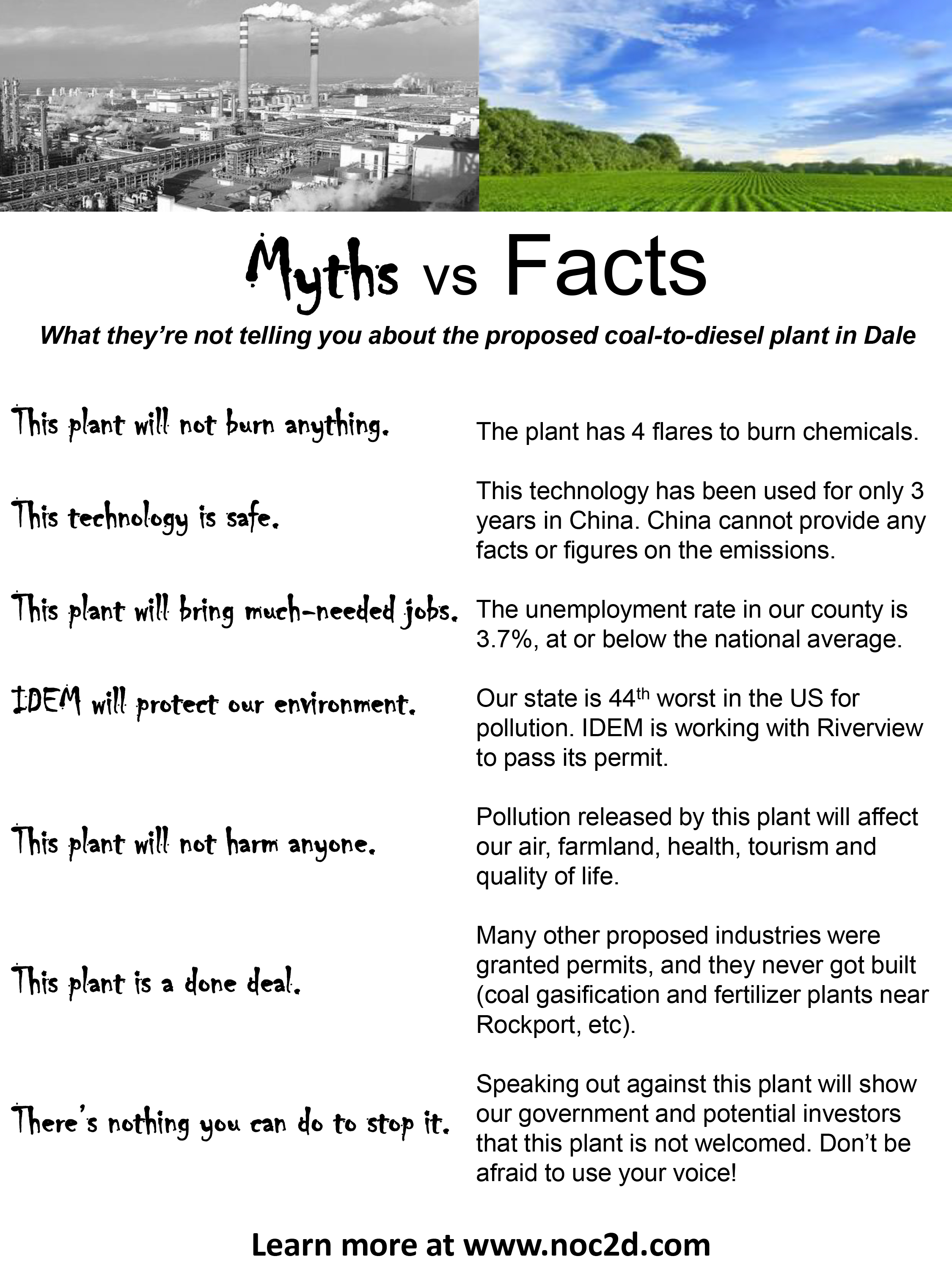
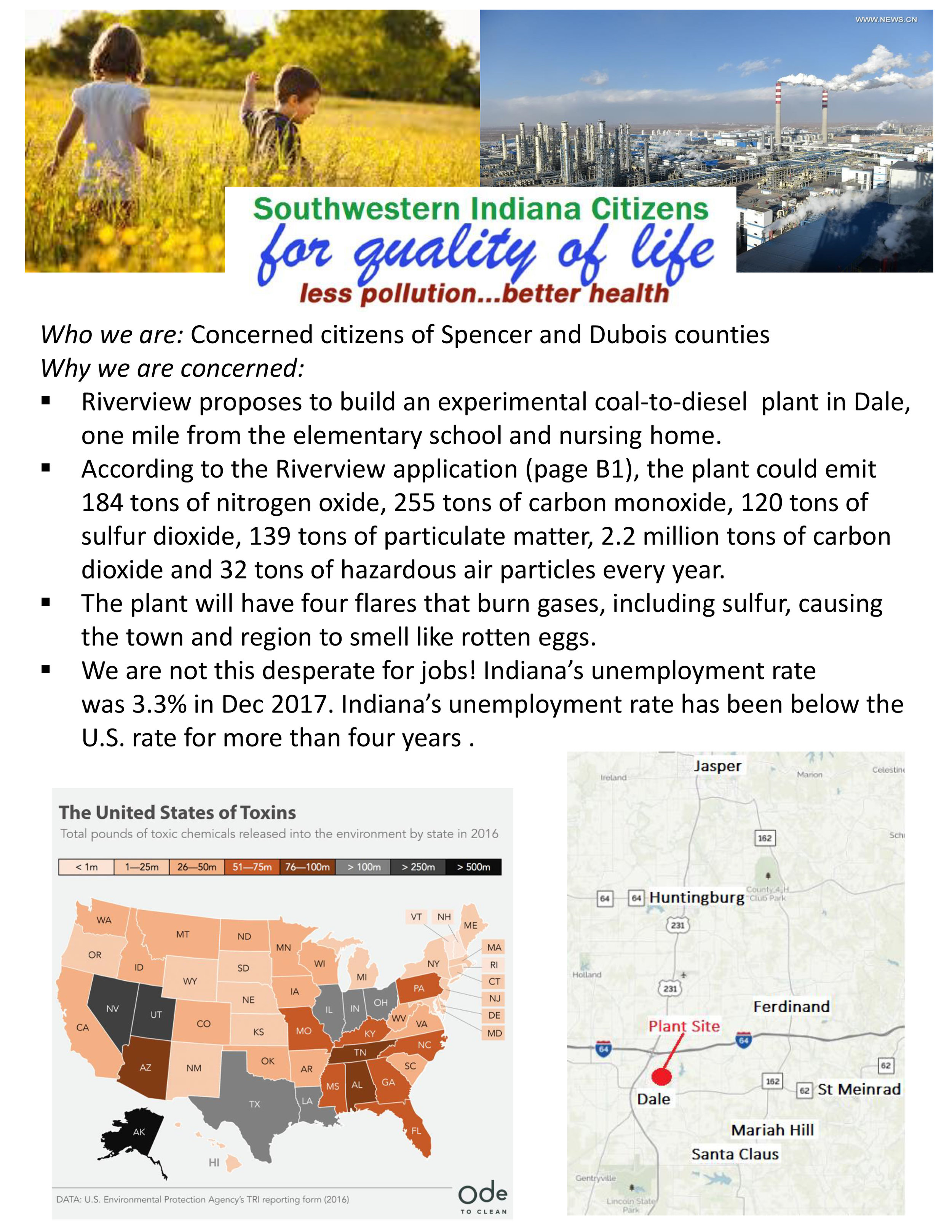
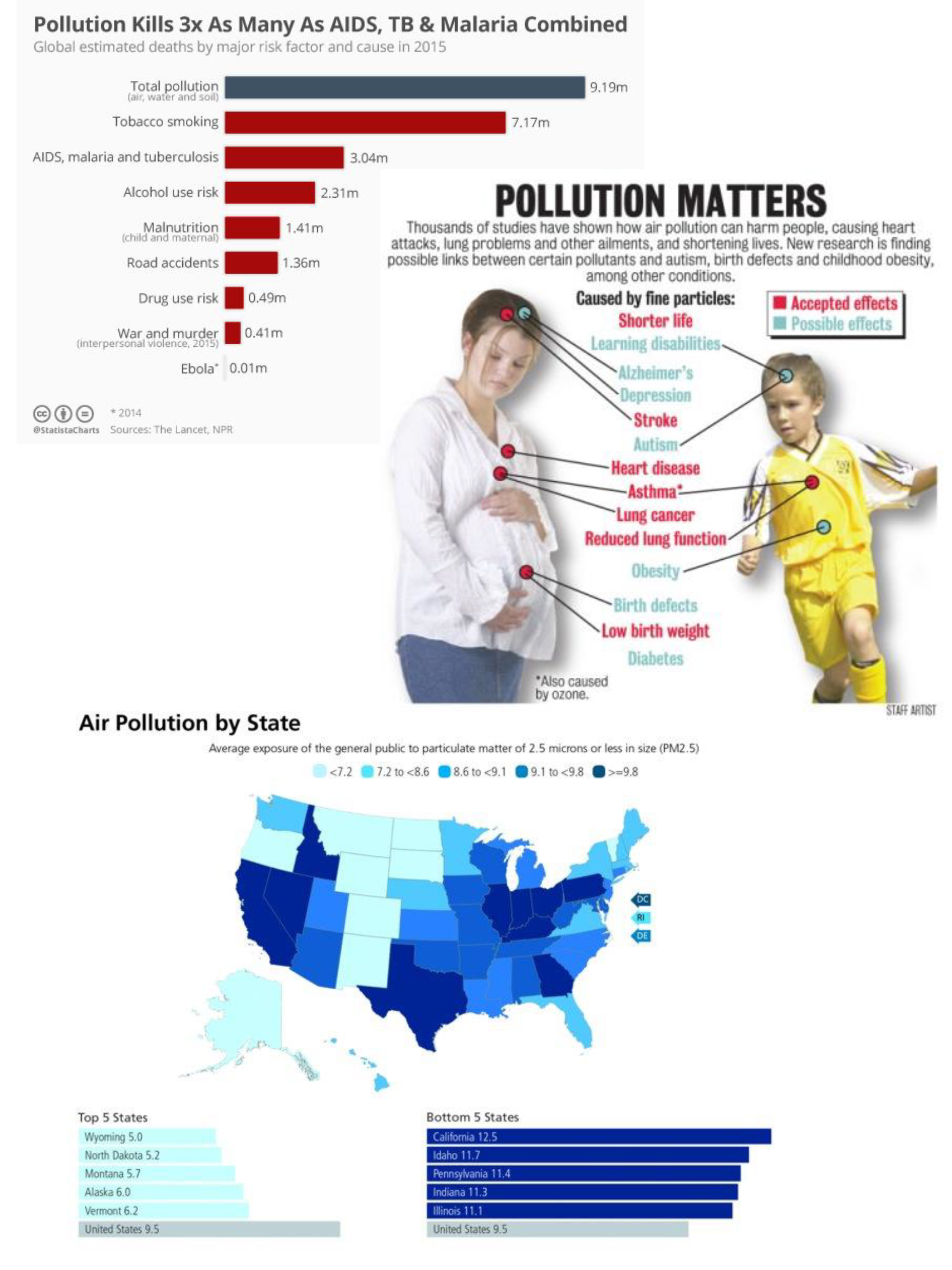
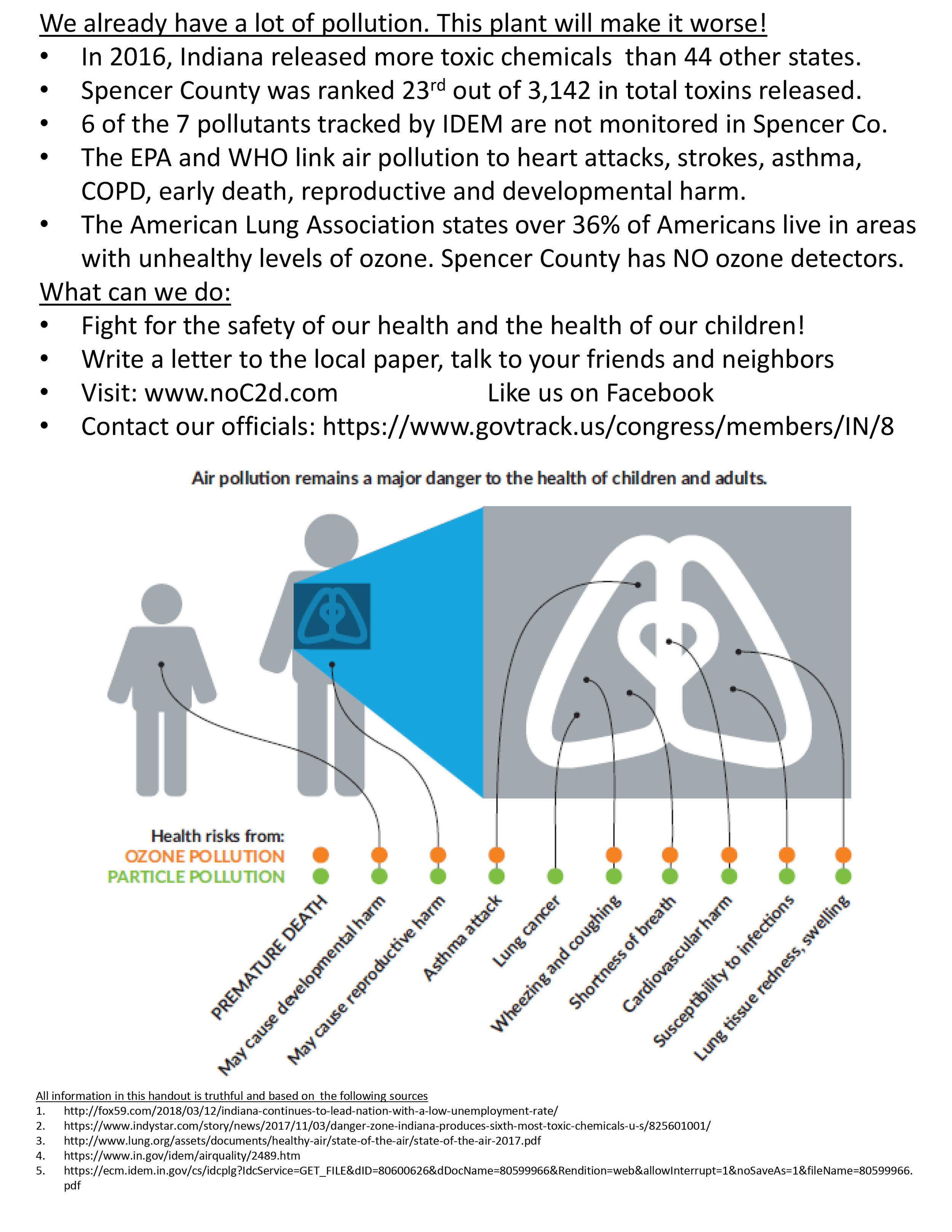
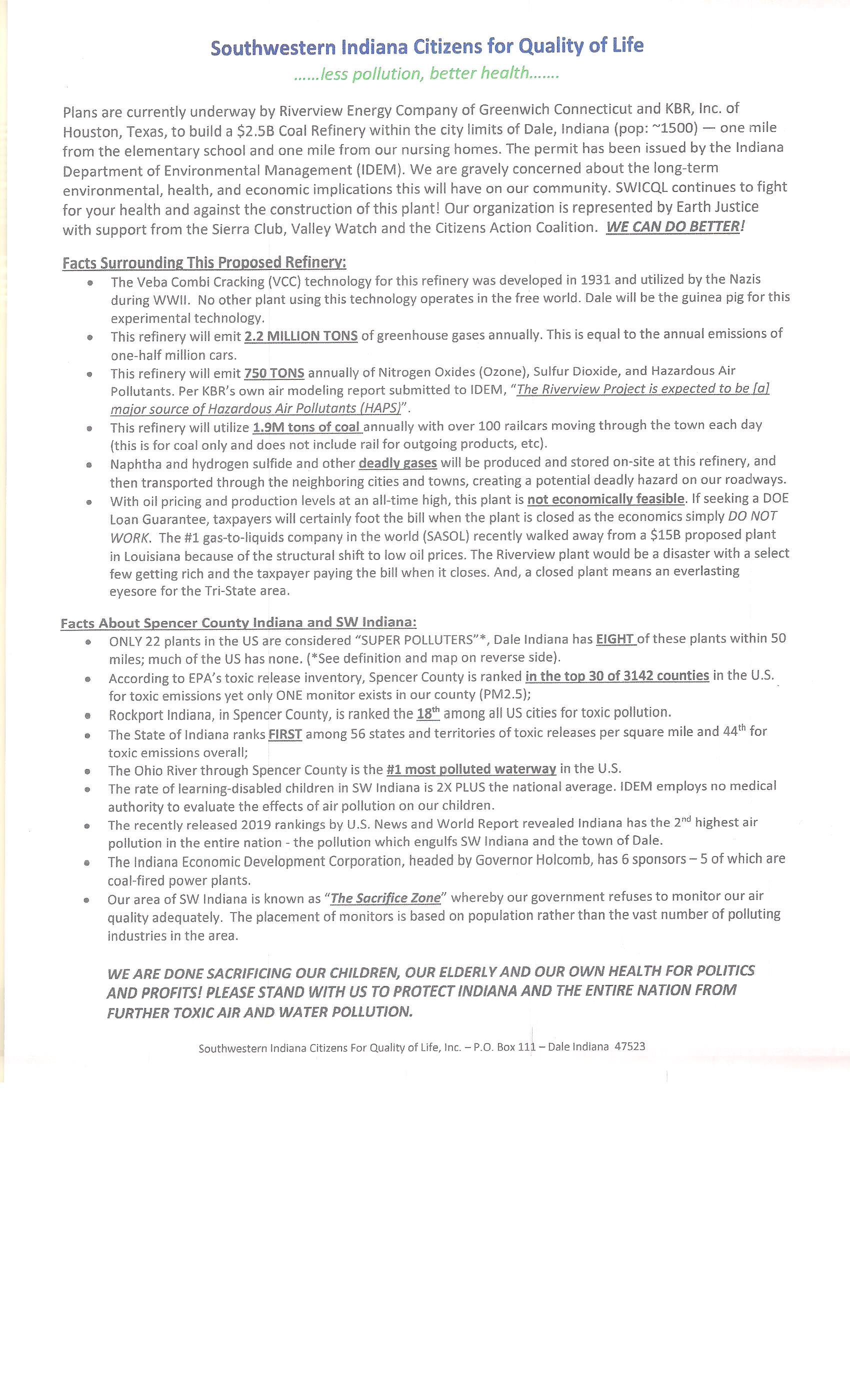
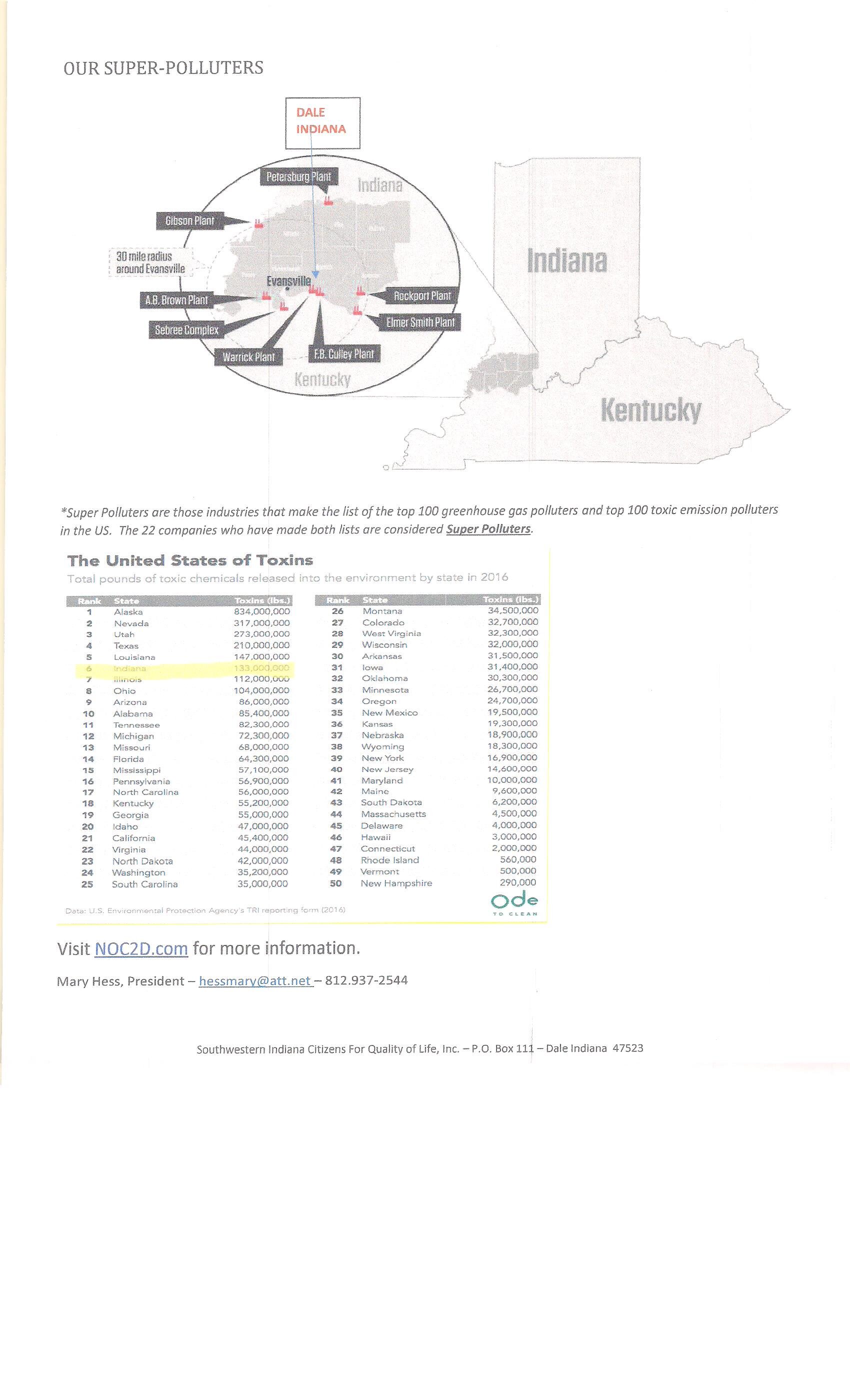
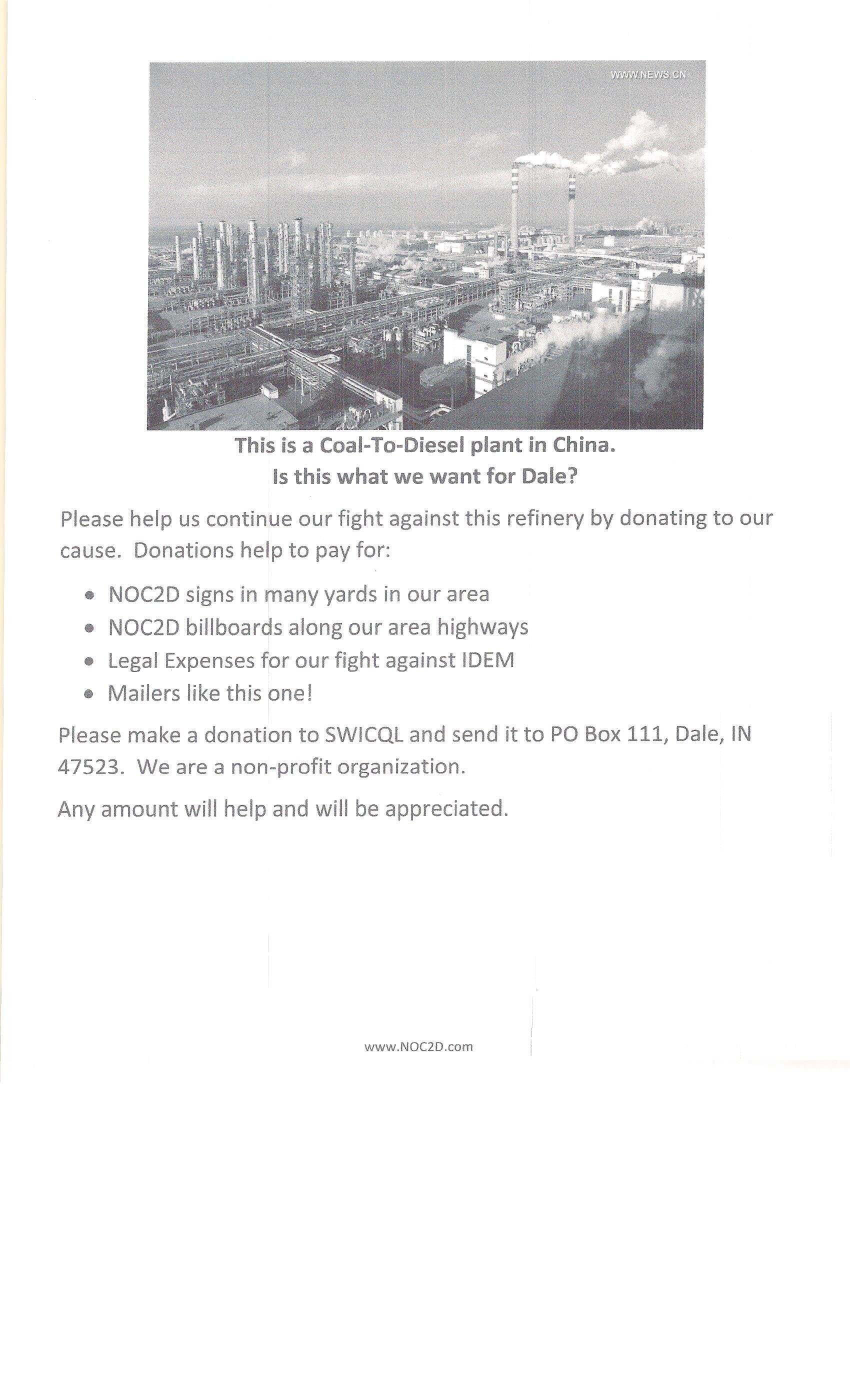
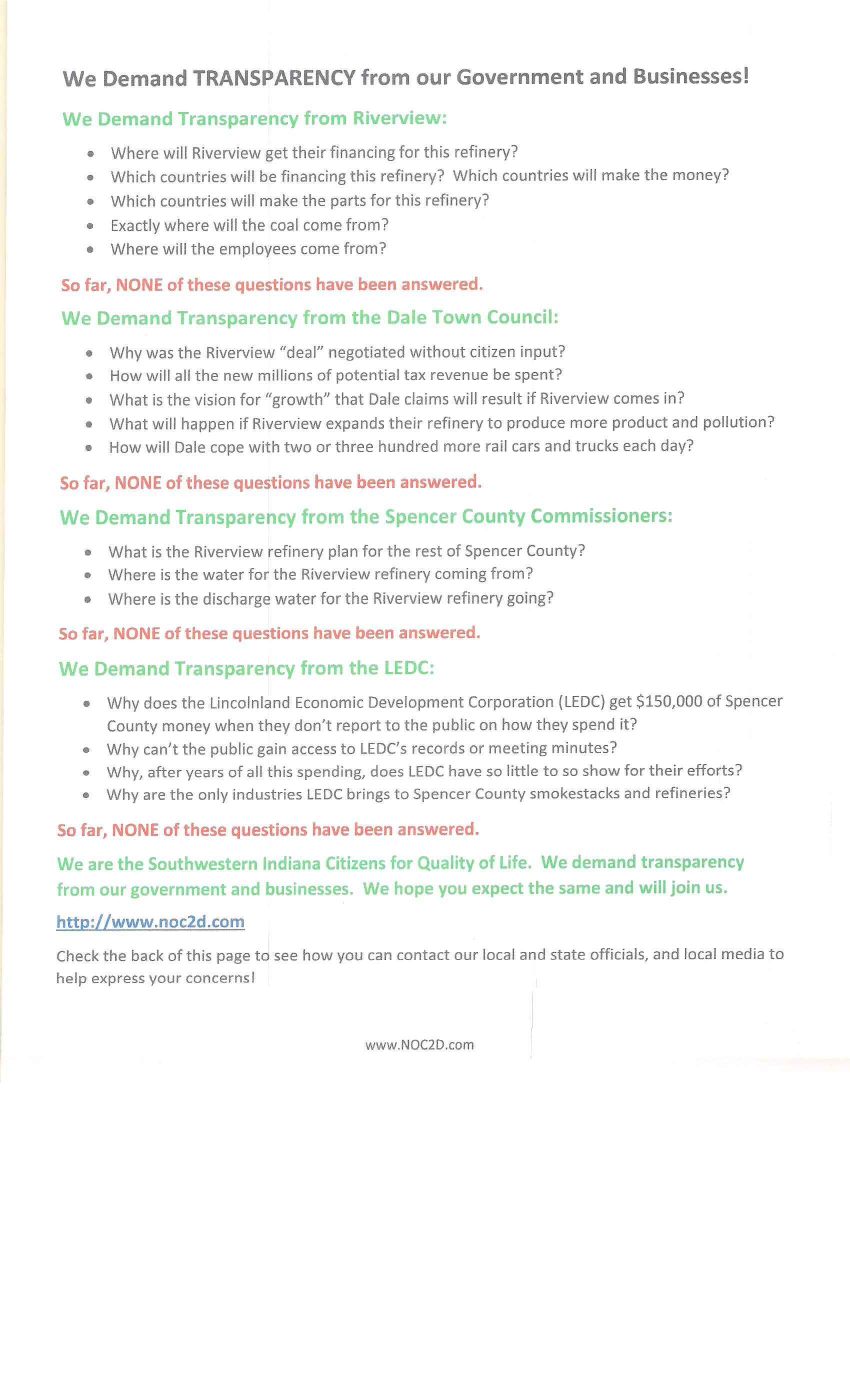
Our Concerns
Pollution
Air: the plant will emit nearly 750 tons a year of pollutants, including Nitrogen Oxides (Ozone), Sulfur Dioxide, and Hazardous Air Pollutants (HAPS)
Water: runoff from the plant will feed directly into Pigeon Creek
Ground: Naphtha and Hydrogen sulfide, volatile and lethal chemicals will be produced and stored on-site
Noise: 100 railcars a day carrying coal and innumerable large trucks carrying chemicals into and out of the plant
Dust: four 100 foot tall stacks of coal left open to the wind
Global warming: the fuel it produces releases twice as much carbon dioxide as conventional diesel and the plant will emit 2.2 million tons of CO2 yearly
Proximity to town
1 mile from the local elementary school, nursing home, and town center
Increased risks of preterm birth, infant mortality, deficits in lung growth, respiratory symptoms, asthma exacerbations, and asthma hospitalizations in town residents and their children
Effects on tourism
Sulfur produced will have a strong odor
Increased trucks and trains will cause traffic through and around town
The plant itself will be an eyesore
Light from the flares will blaze into the night
Decreased property values
For properties around the plant and those who will have the water and wastewater pipes built on their properties
It will burden our resources
1.8 million gallons of water a day
Large amounts of electricity or natural gas to run the plant
This technology is highly controversial
No plant of its kind has ever been built in the US
All other similar plants have either been stopped before breaking ground or have been stopped mid-construction, leaving investors in debt and a mess for the local community to clean up
It is not economically sound
Due to the expense in making this fuel, it is not profitable unless oil prices are over $100 a barrel. Today, the price of oil is around $60 a barrel
Poor reputation
KBR has had several lawsuits for dishonest practices. Notably, they knowingly exposed Tell City National Guard soldiers to harmful levels of chromium, resulting in the deaths of two American heroes
Riverview Energy attempted to build a similar facility in Vermillion County, but after 4 years the local authority backed out
It is not feasible in the long-term
Laws regulating carbon may make these fuels economically nonviable, resulting in plant closure, unemployment, and a toxic waste site
Sources
https://www.theguardian.com/environment/2018/mar/02/clean-coal-america-kemper-power-plant
https://www.reuters.com/article/us-china-ctl/china-builds-plant-to-turn-coal-into-barrels-of-oil-idUSSP13361320080604
http://pediatrics.aappublications.org/content/114/6/1699
https://www.theguardian.com/environment/2008/feb/20/china.ctl
https://www.eenews.net/stories/1060013819
https://www.huffingtonpost.com/david-isenberg/kbr-private-military-canc_b_609247.html?ncid=engmodushpmg00000006
